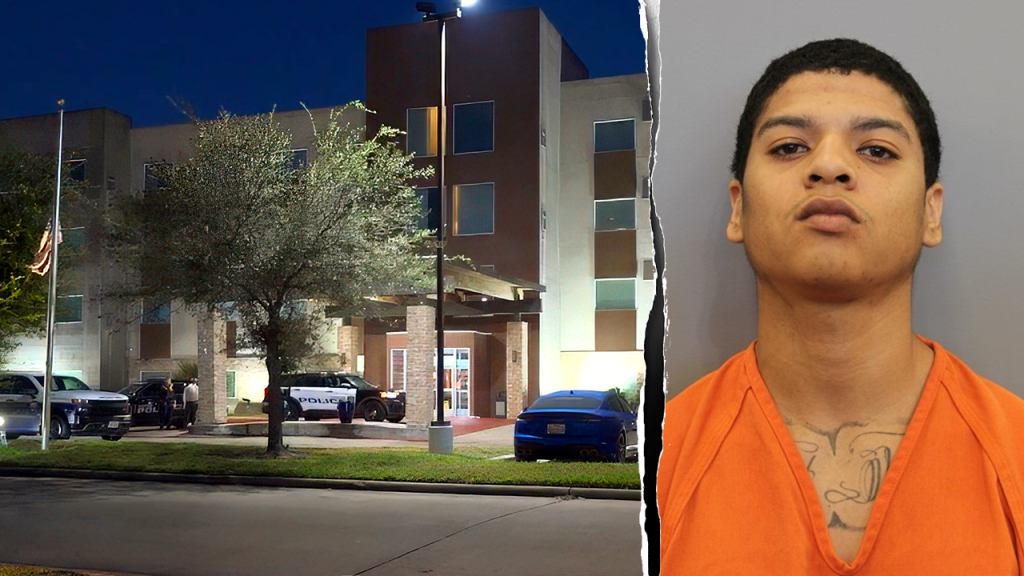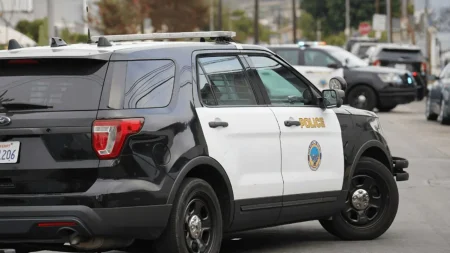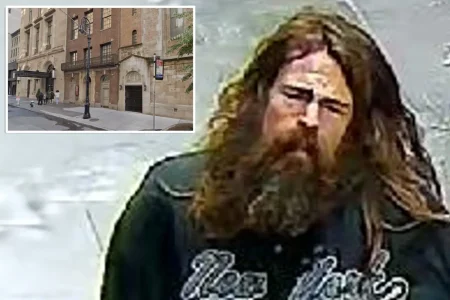Tragic Houston Murder Reignites Bail Reform Debate
A devastating murder in Houston has renewed concerns about Harris County’s controversial bail practices, highlighting the potential consequences of releasing repeat violent offenders. Gabriel Isaiah Menefee, a 23-year-old with an extensive criminal history, was arrested and charged with the murder of 25-year-old Jaylon Ward following a deadly argument in a hotel room on November 2. The case has become a focal point in ongoing discussions about public safety, bail reform, and the balance between judicial discretion and community protection in one of Texas’s largest counties.
For Taiwan Henderson, Ward’s mother, life changed irreversibly in the early morning hours when she received the call that no parent ever wants to receive. “Saturday morning at 3 a.m., I received the most horrific call a mother should never hear,” Henderson shared in a heartbreaking social media post. “My one and only son, the baby of the bunch — Jaylon was robbed and killed. I don’t wish this pain on no one… not even my worst enemies.” Her anguish echoes that of countless families affected by violent crime, particularly in cases where the suspect has a history of previous offenses. Police reported that when officers arrived at the scene around 3:15 a.m., they found Ward suffering from at least one gunshot wound. Paramedics pronounced him dead at the scene. Investigators identified Menefee as the suspect and apprehended him four days later, while also arresting 17-year-old Kaleb Bates on related auto theft charges.
What makes this case particularly troubling to victims’ advocates is Menefee’s extensive criminal history and his repeated releases from custody. Andy Kahan, director of victim services and advocacy for Crime Stoppers of Houston, emphasized a disturbing pattern in Menefee’s criminal past: “Every offense Gabriel Menefee was involved with had one common denominator — a gun.” Court records reveal that Menefee’s first arrest came in March 2020 on charges of robbery and aggravated assault with serious bodily injury, after which he was released on a personal recognizance bond. In 2021, he faced charges of aggravated assault with a deadly weapon and was freed on a $20,000 bond. By October 2022, he received four years of probation, which he subsequently violated. Most recently, in October 2024, Menefee faced another aggravated assault charge but failed to appear in court. His probation was revoked, and he was at large until his arrest for Ward’s murder. Kahan also noted that Menefee is allegedly a member of a local gang called “Play No Games” and has been linked to a park shooting earlier this year that left bystanders “fearing for their lives.”
The case arrives at a pivotal moment in Texas criminal justice reform. State Senator Joan Huffman, a Republican from Houston and former prosecutor and judge, recently authored significant bail reform legislation specifically designed to address situations like Menefee’s. “This case exemplifies the revolving door in Harris County’s bail system that SB 9 and SJR 5 aim to fix,” Huffman told Fox News Digital. “Too often, repeat violent offenders, charged with felonies like murder or assault, are released on low bonds, only to reoffend.” Huffman’s legislation, passed this year and recently approved by voters, empowers judges with greater authority to deny bail for certain violent crimes. The constitutional amendment, which voters overwhelmingly supported just days before Ward’s murder, represents what Huffman calls “a monumental step forward by giving judges the tools to hold the most dangerous offenders without bond.”
While the new legislation provides enhanced judicial discretion, Huffman emphasized that implementation and oversight will be crucial to its effectiveness. She has called for comprehensive training for judges, magistrates, and pretrial services staff on the expanded no-bail provisions, along with enhanced data reporting requirements to monitor bond decisions in real time. “I’ll closely monitor how my new laws are implemented and will push for further action if judges fail to comply,” Huffman stated, making it clear that community safety remains her top priority. The senator, who is currently running for Texas Attorney General, has pledged to make public safety the office’s primary focus if elected, drawing on her experience in the criminal justice system to ensure “violent offenders face swift and certain justice.”
As Menefee remains in custody on murder charges before the 263rd District Court, Ward’s case has become more than just another tragic statistic—it represents a flashpoint in the ongoing debate about criminal justice reform in Texas. Critics argue that repeat violent offenders are too often released on bond only to reoffend, while reform advocates push for systemic changes that better balance public safety with constitutional rights. What remains undisputed is the profound human cost when these systems fail: a mother grieving her only son, a community questioning its safety, and renewed calls for accountability among those entrusted with protecting the public. As Texas implements new bail reform measures, cases like Ward’s will serve as somber reminders of what’s truly at stake in these policy decisions—not just abstract questions of judicial procedure, but real lives forever altered by violence.











